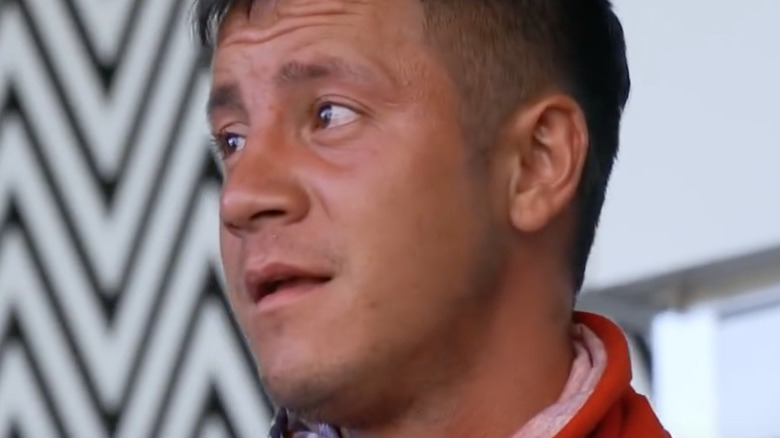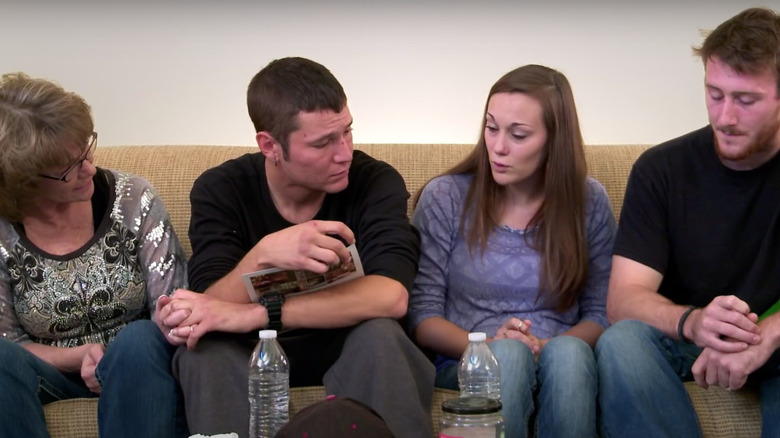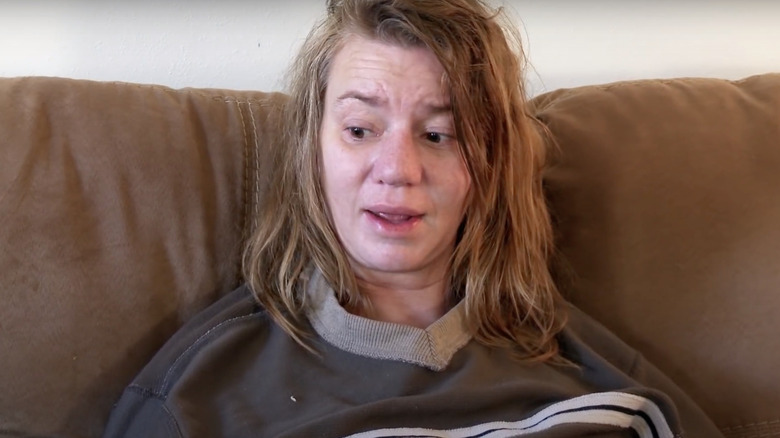The Secret You Probably Didn't Know About Intervention
"Intervention" is one of A&E's longest-running shows, with 23 seasons and counting. An Emmy award recipient for Outstanding Reality Program, the show revolves around the lives of people who are struggling with substance addiction. As you can tell by the name, an intervention is planned for the show's cast members in an attempt to turn their lives around, which is then documented and shown on TV.
Each episode follows more or less the same format. The participant finds themselves in an intervention meeting that had been organized without their knowledge, and they're asked to choose between two options: enroll in a rehabilitation program or be cut off from their friends and family, per the Daily Beast. Most participants end up choosing the former, and their road to recovery gets documented on the show.
While the Daily Beast's calculated success rate of 71% on "Intervention" looks promising, there's more to the show than what meets the eye. While it appears like a great show that can have a positive and lasting impact on people dependent on drugs, alcohol, and other substances, the program might not have always been exactly honest about what goes on when the cameras aren't rolling.
Not all moments shown on Intervention are authentic
Part of the appeal of reality shows like "Intervention" is the sense of empathy they evoke. Viewers connect to the characters and identify with their failures and successes. It turns out, though, that not everything viewers are seeing is genuine. In the case of "Intervention," some of the scenes are staged.
In a Reddit thread that gathered anecdotes from people who have experience working on reality programs, one user who claimed to have worked on "Intervention" said that some participants on the show had been asked to act for the cameras. "The crew doesn't 'follow' the addict. They plan in advance the scenes they need to get/what they need the addict to do ie. using drugs, buying drugs, getting in [a] fight with family at dinner," the post read. "Some of the drama is real, but the producers force the situations that make the drama happen."
However, in a separate Reddit AMA (Ask Me Anything) thread by Chris Baron, a cinematographer that had worked on "Intervention," said that the show is nothing but truthful. "I can say truthfully say that Intervention is the most honest show that I have been a part of," Baron shared. "The subject nor the family receive money, other than an opportunity to get help. The craziness that you see is real, addiction is crazy."
The Intervention success rate isn't as high as it used to be
It's unclear whether or not there were indeed scenes that were staged to make "Intervention" more interesting, but one thing's for sure: The program really has the power to change people's lives for the better, although the success rate at present isn't as high as when the show started. Per the Daily Beast, the show boasted a 71% success rate in 2010. At the time, 130 out of the 161 participants remained clean and sober.
The success rate dropped to 64.2% in 2013, according to Reality Blurred, a blog that focuses on reality TV. Meanwhile, in 2015, Reality Blurred and Business Insider reported it dropped even further to 55%. There's no further information regarding the show's success rate currently available. Regardless, the team behind the show is proud of what they've achieved.
"I think we get to send a lot of them off to treatment with a little bit of a head start on evaluating themselves and their lives and what's led them to this low point," showrunner Jeff Weaver told Business Insider in 2015. "When our subjects say yes to treatment, they've just undergone an intense documentary process where they're asked hard hitting, deeply personal questions about every aspect of their lives."
If you or someone you know is struggling with substance abuse and addiction, help is available. Get in touch with SAMHSA's 24-hour National Helpline at 1-800-662-HELP (4357).



